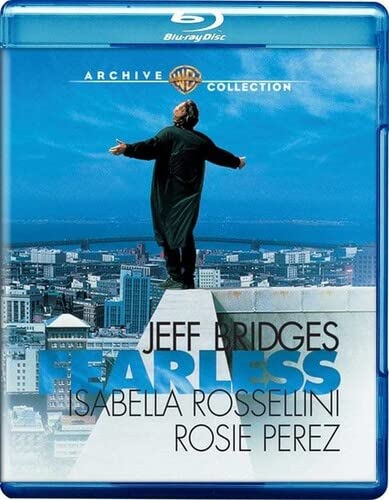
Having “been there, done that” throughout the whole of the ’90s, I have to say I have a certain amount (read: a lot) of bias against the entire decade. Why, I cringe in terror whenever I think of the god-awful colors our extremely baggy articles of clothing were endowed with to the music scene that seemed to accomplish very little in the grand scheme of things except that most people needed to bathe more. And then there were the films of said era, like Forrest Gump. What the hell were you all on, for God’s sake? And thought a thousand-and-one film adaptations of every John Grisham and Tom Clancy novel would be a good thing?
I kid, of course. Well, mostly. Aw, nah, I don’t. I guess I really don’t like most of the movies from the ’90s, either. And I didn’t necessarily feel that way then, mind you. Quite the opposite, in fact. It’s just that most of the films made during that particular decade leave a bad taste in my mouth now. You couldn’t pay me to sit through Pulp Fiction – or any other Tarantino film, for that matter – today. Naturally, there are exceptions to my apparent prejudice. I could watch The Big Lebowski on a regular basis with no problems whatsoever. And one of the reasons there is that the film was a completely different affair; one that doesn’t easily fit into any predefined genre classifications.
Amazingly enough, another Jeff Bridges movie from the ’90s – Peter Weir’s Fearless – falls under my heading of “Hey, that isn’t all that bad when viewed today”, even though it clearly shows signs of trying a bit too hard like many of its counterparts from the period that really did try too darn hard.
Here, Bridges is cast as Max Klein, a humble architect from San Francisco whose very look at this crazy little thing called life changes completely when he walks away from a catastrophic plane crash – an act of God that takes his own best friend (Star Trek: The Next Generation favorite John de Lancie) away in the process. Though surprisingly comfortable with the fact that he is not afraid to die, Max instead assists his fellow, frightened passengers. Afterward, as people lie around in shock, Max walks away from the crash, rents a car, and makes way for Los Angeles before the FBI catches up with him to inquire various what and why sorts of questions.
After insisting with some very puzzled authorities that he fly back to San Francisco, Max returns home, where he immediately begins to worry his smokin’ hot wife (the smokin’ hot Isabella Rossellini) by distancing himself away from them and choosing to devote time to a fellow, grieving survivor (Rosie Perez, in what is probably her best performance, though all of those bad comedies she made in the already bad ’90s like White Men Can’t Jump) who is unable to cope with her own inner demons following the loss of her infant son in the crash. But Good Samaritan Max manages to reach the otherwise-inconsolable mother – though his own fearless methods, such as blasting U2 whilst bashing an automobile into a wall, may be considered questionable by those so-called “professional” therapists.
Speaking of therapists, Bridges’ Lebowski co-star John Turturro is featured here as a psychiatrist, while the supporting cast is rounded out by Tom Hulce as an attorney, and Deirdre O’Connell as John de Lancie’s widow. Benicio del Toro has a small(er) role as Perez’s angry husband, and Debra Monk has an extended cameo as Bridges’ high school sweetheart.
Originally released to DVD in the late ’90s as one of those terrible budget discs with less-than-stellar full-frame presentations and no special features or menus whatsoever, it’s nice to see Fearless hit Blu-ray, where is now sports an impressive HD transfer in its intended 1.85:1 aspect ratio, a lossless DTS-HD MA 2.0 audio track, English (SDH) subtitles, and a theatrical trailer as a bonus goodie (which is a lot more than that old DVD had, mind you!).
Sure, this Blu-ray of Fearless is only available on a made-to-order basis, but when you stop to consider that this movie still packs the same emotional punch it was intended to deliver over twenty years ago, its reputation with the general public has waned somewhat in that time. That bad DVD from the already bad ’90s might have had something to do with it. (Or maybe people have the nasty habit of confusing this movie with Hero – one of the many bad movies from the already bad early ’90s – and which I, sadly, had the misfortune of paying to see in the theater.) Or perhaps people just aren’t fearless enough to pick up this way-better-than-average cinematic offering. Who knows?
But I recommend it either way.